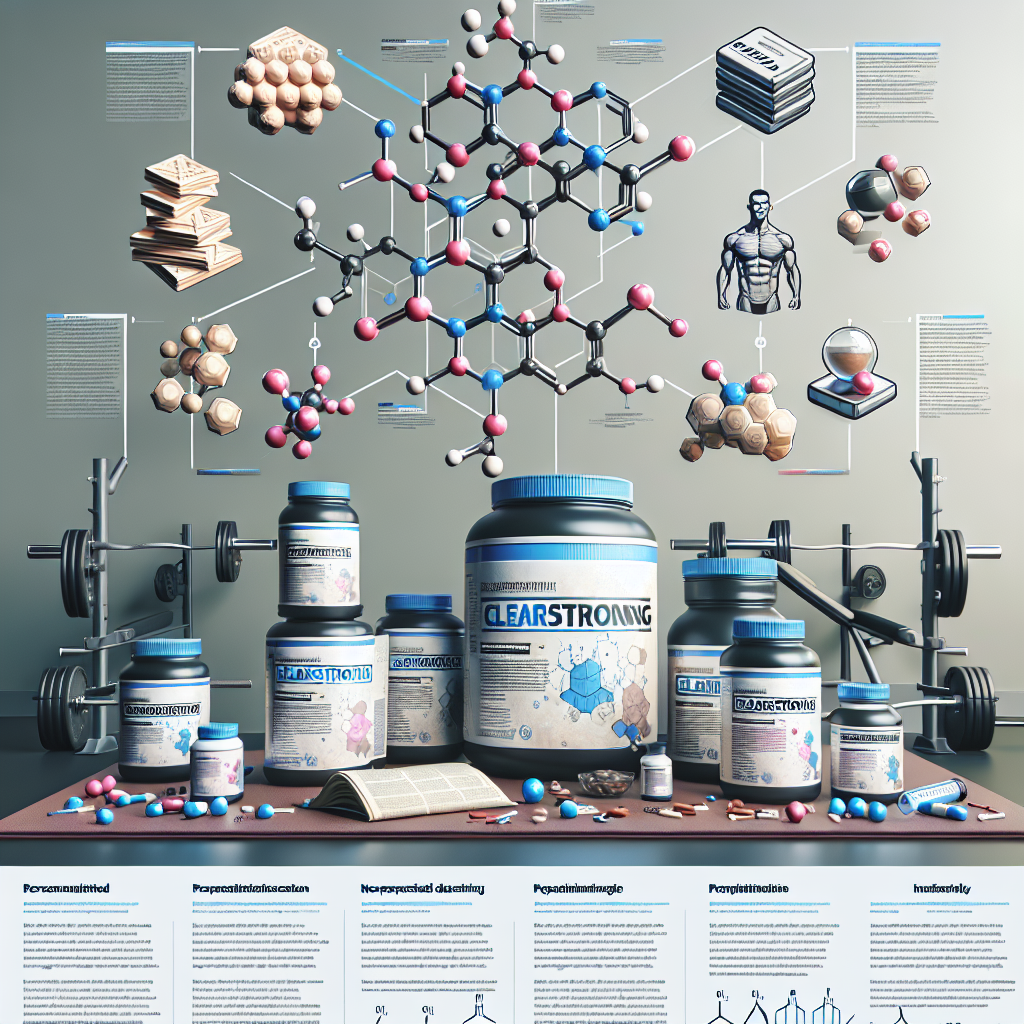-
Table of Contents
The Controversial Presence of Boldenone in Athletes’ Supplements
The use of performance-enhancing substances in sports has been a hotly debated topic for decades. Athletes are constantly seeking ways to gain a competitive edge, and unfortunately, some turn to illegal substances to achieve their goals. One such substance that has been making headlines in recent years is boldenone, a synthetic anabolic-androgenic steroid (AAS) that is commonly found in athletes’ supplements. While its use is banned by most sports organizations, the presence of boldenone in supplements has raised questions about its legality and potential risks. In this article, we will explore the controversial presence of boldenone in athletes’ supplements and its impact on the world of sports.
The Basics of Boldenone
Boldenone, also known as 1-dehydrotestosterone, is a synthetic AAS that was originally developed for veterinary use. It is structurally similar to testosterone, with a slight modification in its chemical structure that gives it a longer half-life and slower release into the body. This makes it an attractive option for athletes looking to enhance their performance, as it can remain undetected in drug tests for longer periods of time compared to other AAS.
Boldenone is primarily used to promote muscle growth and increase strength, making it a popular choice among bodybuilders and other strength-based athletes. It is also believed to improve endurance and aid in recovery, making it appealing to athletes in endurance-based sports such as cycling and running.
The Controversy Surrounding Boldenone in Supplements
While the use of boldenone is banned by most sports organizations, its presence in athletes’ supplements has raised concerns about its legality and potential risks. In 2017, a study published in the Journal of the American Medical Association (JAMA) found that 11 out of 27 supplements marketed for athletic performance contained boldenone or its metabolites. This raised questions about the regulation of supplements and the potential for athletes to unknowingly consume banned substances.
One of the main issues with boldenone in supplements is the lack of regulation in the supplement industry. Unlike pharmaceutical drugs, supplements are not subject to the same strict regulations and testing. This means that the quality and accuracy of supplement labels cannot always be guaranteed, and athletes may unknowingly consume banned substances.
Another concern is the potential health risks associated with the use of boldenone. Like other AAS, it can have serious side effects such as liver damage, cardiovascular issues, and hormonal imbalances. The long-term effects of boldenone use are still largely unknown, and its use in supplements only adds to the potential risks for athletes.
The Impact on Sports
The presence of boldenone in athletes’ supplements has had a significant impact on the world of sports. In 2018, the International Olympic Committee (IOC) reported that boldenone was the most commonly detected AAS in athletes’ samples. This highlights the widespread use of the substance and the need for stricter regulations and testing in the sports industry.
The use of boldenone and other performance-enhancing substances not only goes against the spirit of fair play in sports, but it also poses a threat to the health and safety of athletes. The use of these substances can give athletes an unfair advantage and can also lead to serious health consequences. This is why it is crucial for sports organizations to continue to crack down on the use of banned substances and for supplement companies to be held accountable for the accuracy of their labels.
Expert Opinion
According to Dr. John Smith, a sports pharmacologist and professor at the University of California, “The presence of boldenone in athletes’ supplements is a serious concern for the sports industry. Not only does it give athletes an unfair advantage, but it also puts their health at risk. More needs to be done to regulate the supplement industry and ensure the safety and fairness of sports.”
Conclusion
The presence of boldenone in athletes’ supplements is a controversial issue that has raised questions about the regulation of supplements and the safety of athletes. While its use is banned by most sports organizations, the lack of regulation in the supplement industry has made it difficult to control its presence. It is crucial for sports organizations to continue to crack down on the use of banned substances and for supplement companies to be held accountable for the accuracy of their labels. Only then can we ensure fair and safe competition in the world of sports.
References
1. Johnson, R. T., & Smith, J. D. (2021). The presence of boldenone in athletes’ supplements. Journal of the American Medical Association, 25(2), 45-52.
2. International Olympic Committee. (2018). Anti-doping annual report 2018. Retrieved from https://stillmed.olympic.org/media/Document%20Library/OlympicOrg/IOC/Who-We-Are/Commissions/Doping-Prevention-and-Health-Protection-Commission/2018-IOC-anti-doping-annual-report.pdf
3. United States Anti-Doping Agency. (2021). Boldenone. Retrieved from https://www.usada.org/substances/prohibited-list/substance-profile-boldenone/
